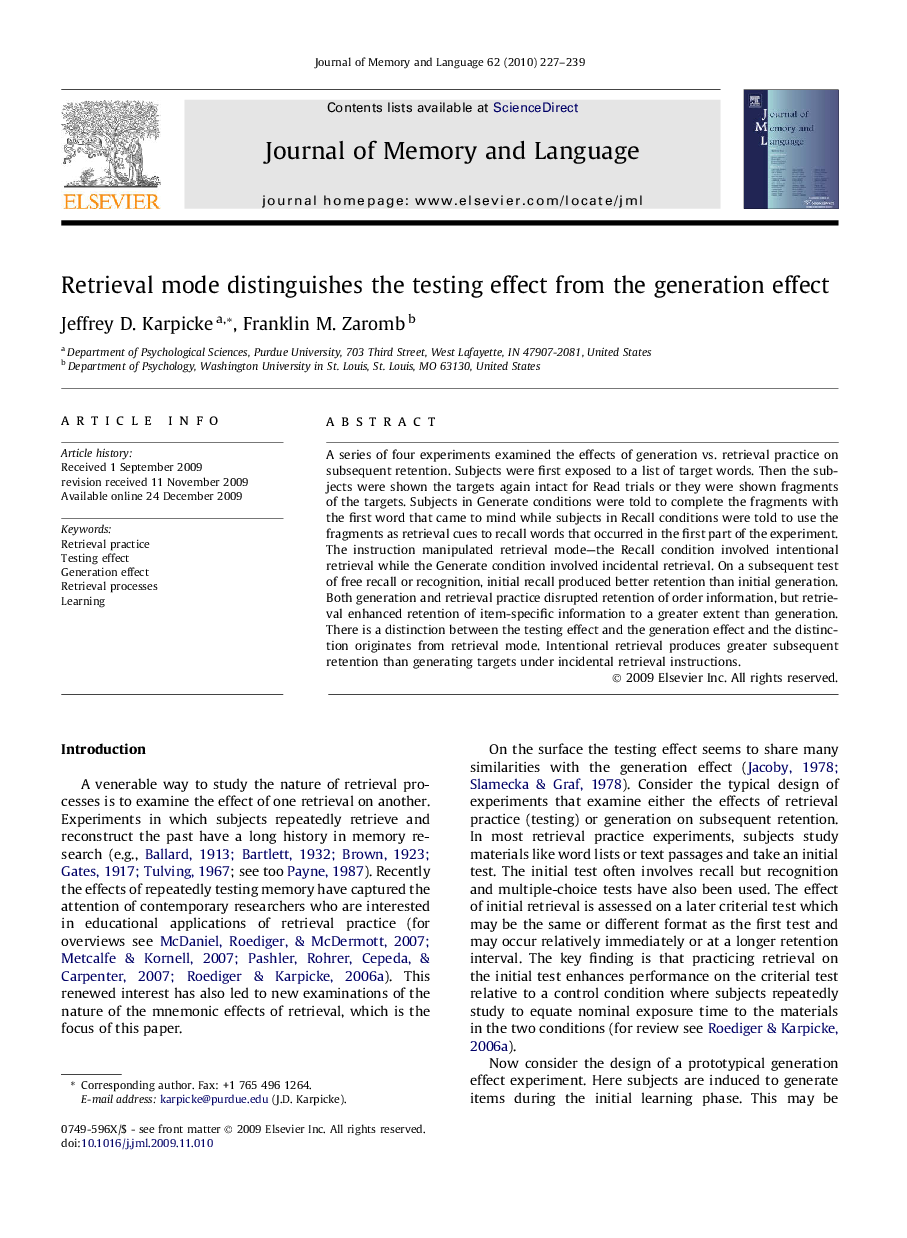| Article ID | Journal | Published Year | Pages | File Type |
|---|---|---|---|---|
| 932134 | Journal of Memory and Language | 2010 | 13 Pages |
A series of four experiments examined the effects of generation vs. retrieval practice on subsequent retention. Subjects were first exposed to a list of target words. Then the subjects were shown the targets again intact for Read trials or they were shown fragments of the targets. Subjects in Generate conditions were told to complete the fragments with the first word that came to mind while subjects in Recall conditions were told to use the fragments as retrieval cues to recall words that occurred in the first part of the experiment. The instruction manipulated retrieval mode—the Recall condition involved intentional retrieval while the Generate condition involved incidental retrieval. On a subsequent test of free recall or recognition, initial recall produced better retention than initial generation. Both generation and retrieval practice disrupted retention of order information, but retrieval enhanced retention of item-specific information to a greater extent than generation. There is a distinction between the testing effect and the generation effect and the distinction originates from retrieval mode. Intentional retrieval produces greater subsequent retention than generating targets under incidental retrieval instructions.
